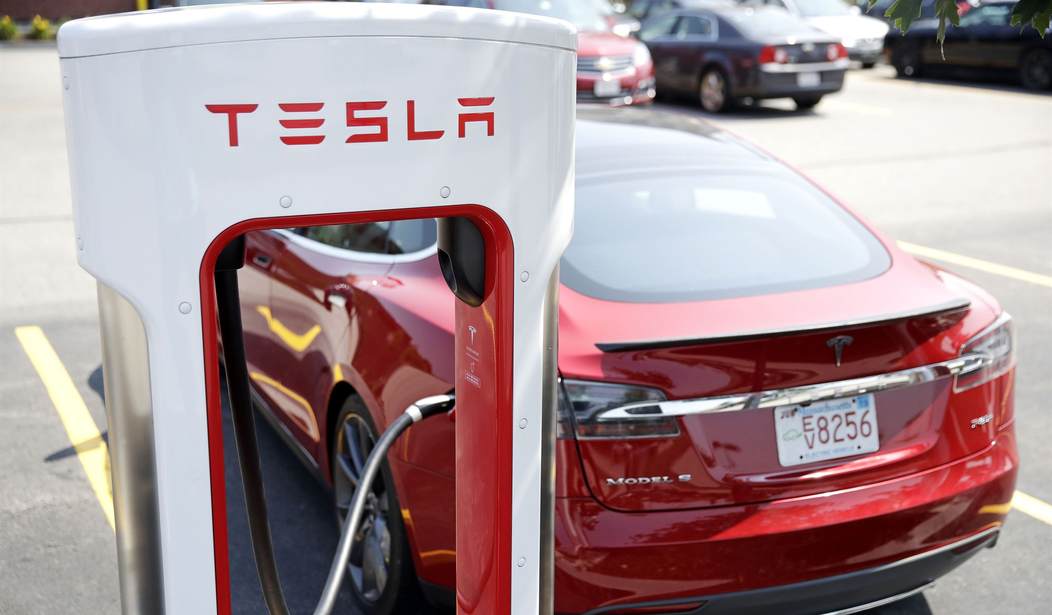Tesla just announced a recall of electric vehicles from U.S. roads that is both bigger and smaller than it sounds.
On a list of the 14 biggest auto recalls in American history, Tuesday's Tesla recall would only rank 15th — you're gonna need a bigger list, Elon. If you're looking for the absolute biggest ever, that dishonor goes to Ford. Way back in 1981, the Dearborn-based automaker had to recall a stunning 21 million Ford, Lincoln, and Mercury models manufactured from 1970-1980 for experiencing "unexpected movement after shifted into park."
Any movement after being shifted into park is unexpected. It's also bad. I can't believe we ever needed to explain this to Ford.
ASIDE: I once had a 1979 Ford Pinto that I nicknamed Parker because sitting there, parked, was its best performance feature. "Road-hugging weight," indeed.
The 14th worst recall was GM in 1973, pulling 3.7 million cars into dealers to correct rocks entering engine compartments from gravel roads. And you thought that rattle in your '72 Impala was just from GM's '70s fit and finish tolerances.
So Tesla's recall of nearly two million vehicles seems almost puny by comparison — except for just one thing.
Tesla's recall covers nearly every vehicle it has ever sold in the United States, including "certain Autosteer-equipped Model S vehicles produced between October 5, 2012, and December 7, 2023, and then every single Autosteer-equipped Model 3, Model Y, and Model X produced since 2016," Motortrend reports.
The good news for lovers of their Model S sedans, Model 3 compacts, or Model X and Y CUVs is that the problem, identified by a two-year National Highway Traffic Safety Administration investigation, can be fixed with a software update.
The bad news is that lovers of Tesla's so-called Full Self Driving mode will have their less-than-full-self-driving mode become even less full-self-driving.
NHTSA investigated nearly 1,000 crashes that occurred when Tesla drivers had the Autopilot feature engaged. The short version is the NHTSA found "numerous accidents over the past several years that suggest that these features do not live up to their names of Autopilot and Full Self Driving," according to CNN's writeup of the recall. The investigation determined that the systems did not properly or frequently enough notify drivers of changes to the system or road conditions.
As a result, new firmware will have to be installed, putting new limits on how the automation interacts with drivers. Here's the NHTSA's description of the changes:
The remedy will incorporate additional controls and alerts to those already existing on affected vehicles to further encourage the driver to adhere to their continuous driving responsibility whenever Autosteer is engaged, which includes keeping their hands on the steering wheel and paying attention to the roadway. Depending on vehicle hardware, the additional controls will include, among others, increasing the prominence of visual alerts on the user interface, simplifying engagement and disengagement of Autosteer, additional checks upon engaging Autosteer and while using the feature outside controlled access highways and when approaching traffic controls, and eventual suspension from Autosteer use if the driver repeatedly fails to demonstrate continuous and sustained driving responsibility while the feature is engaged.
I've been a gadget freak for more than 40 years and the happy adopter of every new technology (except for 3-D TV because, c'mon) in all that time. But when we can't even trust an AI not to just make stuff up about people, there's no way I'm ready to trust Tesla's Autopilot, even to the NHTSA's more restrictive new standards.
Tesla founder Elon Musk has been promising I-mean-it-this-time-for-real Full Self Driving for years without ever fully delivering. Today's NHTSA-mandated recall just set back Musk's long-delated promise ever further.










Join the conversation as a VIP Member